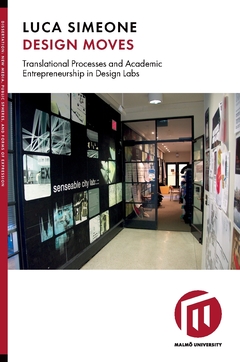This study investigates the relation between the design activity and entrepreneurial ambition of three academic labs: MIT Senseable City Lab, metaLAB (at) Harvard, and Medea at Malmö University. These labs are positioned at the borderland of academic research, as they operate in connection with external stakeholders (industry, NGOs, government institutions) through, for example, joint strategies of intellectual property management or the creation of start-ups. Various economic and social factors motivate the development of these collaborative spaces including the need for academia to secure alternative sources of funding and the political ambition to incorporate knowledge production into the existing value circuits of the market economy. In these spaces, stakeholders with varying interests, agendas, and power positions interact through what can be conflictual and tense processes.
Through the combination of ethnographically inspired methods and a semiotic interpretative framework, the study explores how design practice contributes to value creation in entrepreneurial academic labs. It also focuses on the translation aspect of academic entrepreneurship as emerging from the interrelation of varying and transversal design moves and modes. Spatially dislocated and materially re-articulated within different contexts, the format of the lab actualizes diverse interpretative directions and shifts in meaning relating to multiple stakeholders at certain moments in time. While some moves were pulled toward a linear development process by logic aimed at creating products to be commercialized or publicly showcased, other design moves aimed to preserve complexity and redundancy and retained a high level of openness to external contributions.
To varying extents, the three labs also activated and sustained the more ambiguous aspects of design as a translational practice. In a sense, these three academic labs exemplify in-between spaces that, within the context of the design projects studied, articulate a type of translational entrepreneurship which allows multiple stakeholders to retain their divergences while simultaneously building upon their convergences in coordinated action. This translation activity traveled nonlinear routes but was firmly anchored to what was found to be asymmetrical power dynamics and negotiation as well as certain alliances and actively sustained ambiguity.






